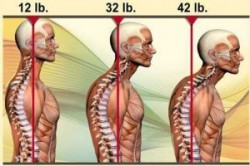I’m probably going to get into a whole mess of trouble over what I’m about to do. The reason I’m going to get into trouble is because I’m about to use my husband as the subject of this article.
You see my husband has this fascinating behavioral trait: he is incredibly careful with his things. In December he bought a new car and eight months later still drives it the way I would drive a borrowed Bentley. When he purchased a new laptop, he refused to take it out of the box and set it up until he had read though the entire instruction manual (I think my computer was open on in the car ride home from the mall and I don’t think I’ve yet opened the manual to this day). I won’t even get into how he cooks with and washes the new frying pan…
Just so that I don’t get into too much trouble tonight, I should add that this behavior doesn’t bother me. In fact I think it’s quite charming and it forces me to acknowledge that I could treat my own things with a little more care. But what fascinates me is that though he has a deep respect for the things he owns, he will, without a second thought, drive himself both physically and mentally into the ground in order to get things done.
The way we care for and “use ourselves” is often overlooked when it comes to our health and wellbeing. We hear from all sides that “we are what we eat” and that it is imperative we maintain well balanced diets, drink plenty of water, and get out into the fresh air to exercise regularly. We learn in kindergarten that we need to wash our hands several times a day to prevent colds and infections. We know instinctively that stress is bad for us, and that a good night’s sleep, meditation, relaxation, and vacations are ways to keep our blood pressure down and our whole selves at their best. And this of course is all true.
But if this is what we believe will keep us in good health, then we’re missing a major piece of the puzzle. The way we go about our daily activities, the way we live and respond to the world around us moment to moment has a weighty effect on our health and wellbeing.
Lets take your car as an example of this. Your manual says (I haven’t exactly read through my manual but I’m sure it mentions this somewhere) that you should have your car thoroughly inspected at consistent intervals, and that oil changes, break repairs, steering alignment, along with a myriad of other routine maintenances will keep your car running optimally. But say you adhere perfectly to these recommendations and take frequent trips to the mechanic. You even get your car washed and waxed every week and keep it in a garage to protect it from inclement weather. However, when you do drive your car, you take turns roughly, fly quickly over potholes, and slam on the breaks more often than necessary. You are rough with the door handles, with the steering wheel, and even with the parking break. Will your car last even half as long as it should?
It really is the same for our selves. If we push to exhaustion and ignore signs of pain when lifting, moving, or bending; if we sit at our laptops for too many hours a day slumped over the keyboard; even if don’t do these things and our only bad habit is to consistently sit, walk or move in an unbalanced way, over the course of ten, twenty, or forty years, our bodies will begin to break down no matter how well we eat and how much we exercise.
We don’t think too much about the small compromises we make with ourselves on a day to day basis, just as we don’t think too much of it when we eat one decadent meal or we hit the brakes too hard every so often when the car in front stops short. Our bodies are built to take on extra stresses from time to time, but it’s when these stresses become daily, unconscious, and unnoticeable that we run into problems. Often we aren’t even aware that we are putting unnatural amounts of stress on ourselves because it feels so normal.
Take a look at this drawing below. The average human adult head weighs about ten to twelve pounds. That’s twelve pounds of force bearing down on the spine nearly every waking hour of every day. However, when the head isn’t balanced on top of the spine (think a slump) the amount of force on the spine increases dramatically. A slump may feel normal and even comfortable, but over time, the increased force can wreak havoc on the whole system. When you look in the mirror, which one of these guys do you see looking back at you?
Do you treat the things you own differently than the way you treat yourself? Have you ever thought about how the way you move, sit, stand, work at a computer, or drive your car may have a direct effect on the amount of energy you have or the pain you may be feeling? I’d love to hear from you.





